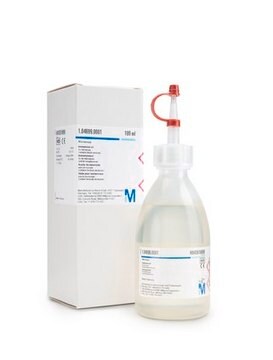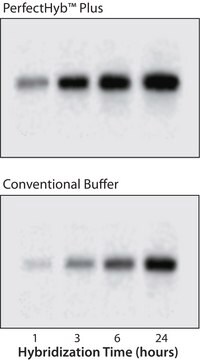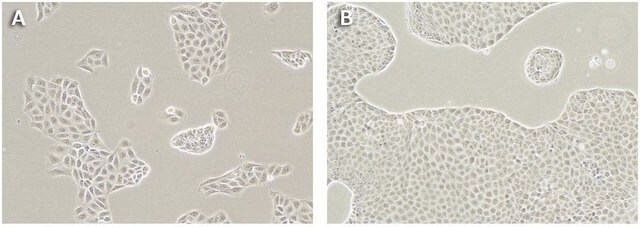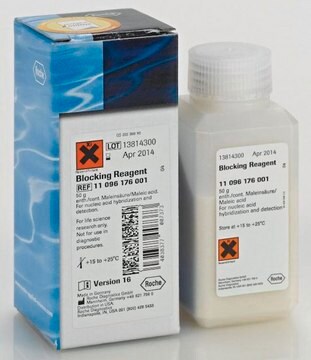H7782
Hybridization solution
Synonym(s):
Hyb solution, Hybridization solution for in situ hybridization, Ready-to-use hybridization solution
Sign Into View Organizational & Contract Pricing
All Photos(1)
About This Item
Recommended Products
General description
In situ hybridization assays detect a specific nucleic acid sequence of a gene at the cellular level. Hybridization solution is used to enhance hybrid formation between the DNA probe and the target mRNA on tissue sections. It may be used for reconstituting and/or diluting the probe for in situ hybridization experiments, or as a negative control (without probe).
Ready-to-use hybridization solution optimized for in situ hybridization (ISH) procedures.
Application
Hybridization solution has been used in:
- fluorescent in situ hybridization (FISH) to perform probe annealing
- in situ hybridization (ISH) to dilute probe for the detection of amastigote forms of Leishmania infantum
- FISH analysis to hybridize probes
Signal Word
Danger
Hazard Statements
Precautionary Statements
Hazard Classifications
Carc. 2 - Repr. 1B - STOT RE 2 Oral
Target Organs
Blood
Storage Class Code
6.1C - Combustible acute toxic Cat.3 / toxic compounds or compounds which causing chronic effects
WGK
WGK 2
Flash Point(F)
Not applicable
Flash Point(C)
Not applicable
Choose from one of the most recent versions:
Already Own This Product?
Find documentation for the products that you have recently purchased in the Document Library.
Customers Also Viewed
Melanie J Harriff et al.
Journal of bacteriology, 191(4), 1132-1142 (2008-12-09)
The Mycobacterium avium complex (MAC) is an important group of opportunistic pathogens for birds, cattle, swine, and immunosuppressed humans. Although invasion of epithelial cells lining the intestine is the chief point of entry for these organisms, little is known about
Ying Lv et al.
Journal of the American Heart Association, 8(2), e010456-e010456 (2019-01-15)
Background Intrauterine growth retardation ( IUGR ) is related to pulmonary artery hypertension in adults, and mi croRNA -206 (miR-206) is proposed to affect the proliferation and apoptosis of pulmonary artery smooth muscle cells ( PASMC s) via post-transcriptional regulation.
Our team of scientists has experience in all areas of research including Life Science, Material Science, Chemical Synthesis, Chromatography, Analytical and many others.
Contact Technical Service









